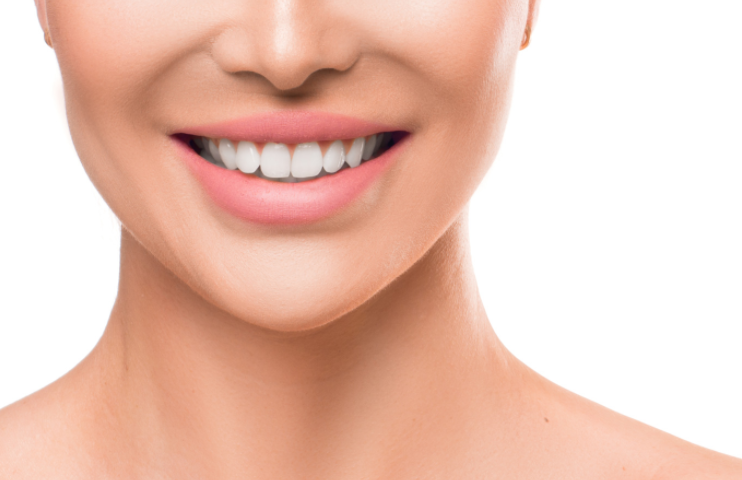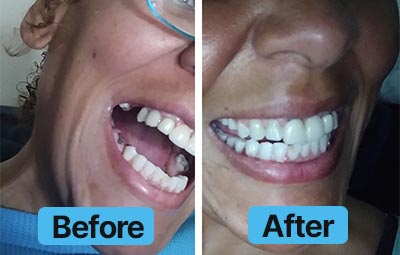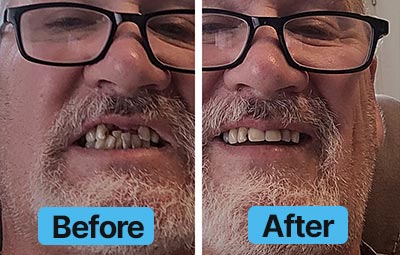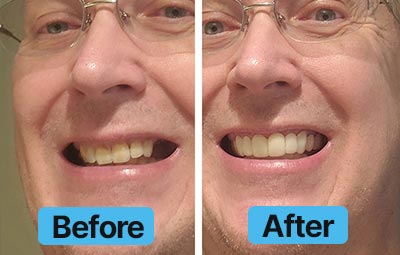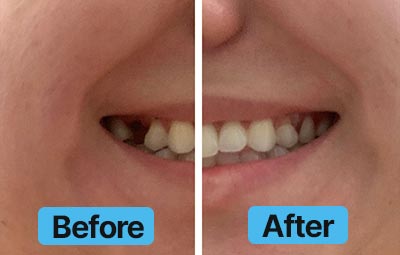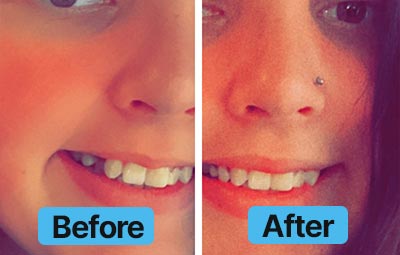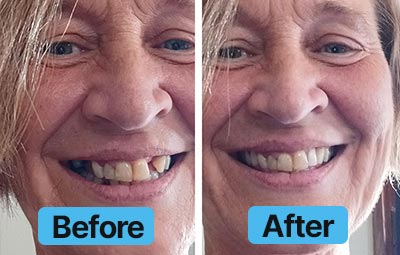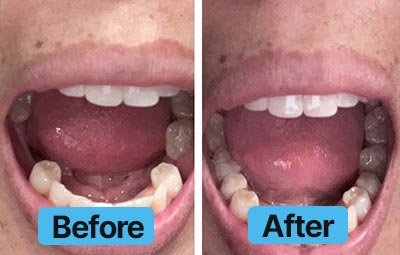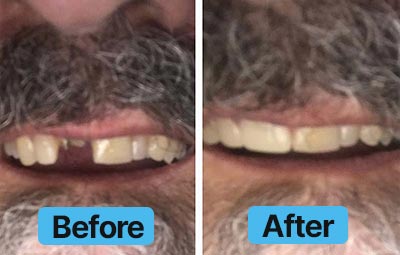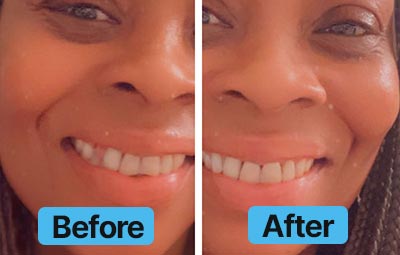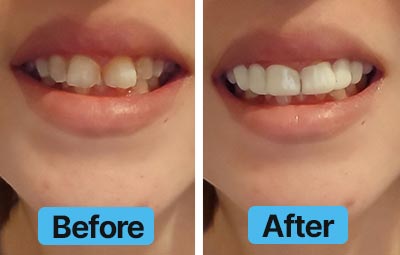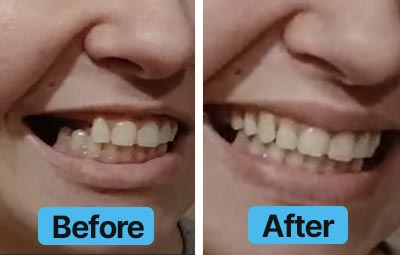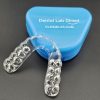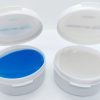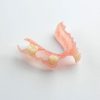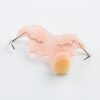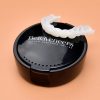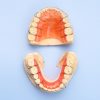A confident smile helps you feel and look your best. While gaps in your smile are often a cause for insecurity and shyness, missing teeth can also be detrimental to your overall dental health. When left untreated, gaps in your smile place more pressure on existing teeth and may lead to more serious complications down the road.
Luckily, with advances in modern dentistry, there are many options to address missing teeth. Tooth replacement choices like dental bridges, dentures, and dental implants range in cost, durability, and permanence. The more you know about your options for replacing missing teeth, the better equipped you’ll be to make a decision that supports your future health.
Complications from Missing Teeth
There are many reasons why an individual might be missing teeth. First things first, you need to ensure that you’ve addressed the underlying cause of your tooth loss. Gum disease, tooth decay, or injury all contribute to tooth loss and usually require additional treatment. Make sure you’re in the clear with your dentist before pursuing replacement options.
If you have missing teeth but aren’t worried about the aesthetic impacts, you may be wondering why do I need to replace my missing teeth? Replacing missing teeth doesn’t just improve your smile. According to Healthline, “Your teeth are designed to work together, so missing one or more teeth can sometimes impact speech, eating, and over time cause other problems.” Aside from difficulty chewing, missing teeth create greater stress on your jawbone. Over time, this repeated impact can lead to serious complications like bone loss.
Options for Replacing Your Missing Teeth
Depending on the location and extent of your tooth loss, certain replacement options might be better suited to address your needs. In addition to the cost of the treatment, you should consider the durability of the appliance and its aesthetic appearance. For instance, if you’re replacing a tooth in the front of your mouth you may be more concerned with procuring a realistic replacement than with durability. Talk with your dentist about your options to narrow down the search.
Generally speaking, there are three main categories for tooth replacement solutions: dental bridges, dentures, and dental implants. Here are some of the pros and cons for each replacement method.
Dental Bridges
Dental bridges are a great option for individuals who are missing a single tooth in separate areas of the mouth. As their name suggests, dental bridges use neighboring teeth to create a “bridge” that fills the gaps in your smile. The bridge is mounted to the two neighboring teeth and supports a fake tooth to fill in the empty space.
Pros of Dental Bridges – One of the biggest benefits to choosing a dental bridge is its quick installation process. A dental bridge doesn’t require any kind of invasive surgery and is a great semi-permanent solution you can implement very quickly. Dental bridges require almost no recovery time and have the added benefit of being a more stable long-term solution than dentures. Dental bridges should not impact your speech or ability to eat.
Cons of Dental Bridges – Because dental bridges create a “bridge,” or connection, between neighboring teeth, they often make it difficult to floss. Instead of using regular dental floss, individuals with dental bridges might need to use floss picks or water picks instead. Additionally, dental bridges do require neighboring teeth to be slightly altered in order to affix the bridge. While in some cases this might not be a big deal, in others it may not make sense to alter perfectly healthy neighboring teeth.
Dental Implants
Dental implants are by far the most invasive form of tooth replacement. Dental implants are metal fixtures that are surgically mounted in the jaw bone. Once the metal implant is in place, a fake tooth is mounted to the stud. This gives the fake tooth stability over a long period of time and creates a natural appearance.
Pros of Dental Implants – Dental implants are a long-term solution for missing teeth that fit seamlessly into your smile. The biggest benefit is that they look and act like natural teeth and you never have to worry about taking them out or doing complicated cleaning routines. Once you have implants, they are there to stay. This also means that implants are a durable solution for teeth that do a lot of chewing. If you want a tooth replacement that’s low maintenance after the initial installation, then implants are a great option.
Cons of Dental Implants – The biggest con of dental implants is the invasive nature of the installation process. Implants are not for everyone and require dedicated time for recovery as well as repeated trips to the dentist’s office. Plus, since your jaw bone is irrevocably altered, there’s no “going back” once you’ve decided that implants are right for you. Dental implants are also the most expensive option up-front, although their longevity does make up for their initial price.
Dentures
Dentures are probably the most common form of tooth replacement available, and offer a lot of versatility to wearers. There are two primary types of dentures: partial dentures and full dentures. Full dentures consist of an entire set of false teeth either for the top jaw, bottom jaw, or both. Full dentures are affixed to the gumline and palate using denture glue and are taken out for cleaning. Partial dentures are flexible plastic appliances that fit around existing teeth and fill in gaps in your smile. They are designed to fit snugly, like a retainer, and are a great option for naturalistic tooth replacement.
Pros of Dentures – Dentures provide easy, budget-friendly, solutions for missing teeth. Dentures are often more cost-effective than bridges or implants, and can even be ordered online without the inconvenience of visiting the dentist. Plus, dentures don’t permanently alter your jaw or teeth, so maybe a perfect interim option if you’re considering more permanent solutions down the line.
Cons of Dentures – Because they are designed to be an impermanent solution, dentures are less-stable than other tooth replacement options. Denture wearers should be advised not to eat tough, sticky, or hard foods while wearing their appliances, in case they shift or come loose during the meal. The instability of dentures may affect chewing and talking, and for these reasons, dentures are sometimes not as discreet as bridges or implants. Dentures also require daily cleaning to keep them bacteria-free and may be lost or damaged when removed.
A Wide Selection of Options for Missing Teeth with Dental Lab Direct
With Dental Lab Direct you can skip the stressful trips to the dentist and start your journey to a brighter, fuller smile today. Dental Lab Direct manufactures high-quality dental appliances using FDA-approved materials.
When you order with Dental Lab Direct, we guarantee your satisfaction within 60 days or your money back. Our three-step ordering process makes improving your smile easy. Once you’ve received our kit in the mail, all you need to do is take impressions of your teeth and send the completed impression kit back to our manufacturers. In a couple of short weeks your appliance will be delivered to your door.
It’s time to embrace your confident, beautiful smile. At Dental Lab Direct we want to help you feel like your best self every day.
 60 DAY warranty on all custom-made products | 1,000+ 5 Star ★★★★★ Reviews
60 DAY warranty on all custom-made products | 1,000+ 5 Star ★★★★★ Reviews